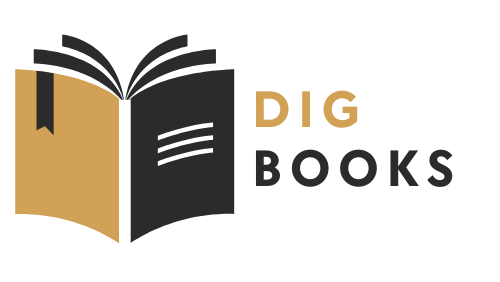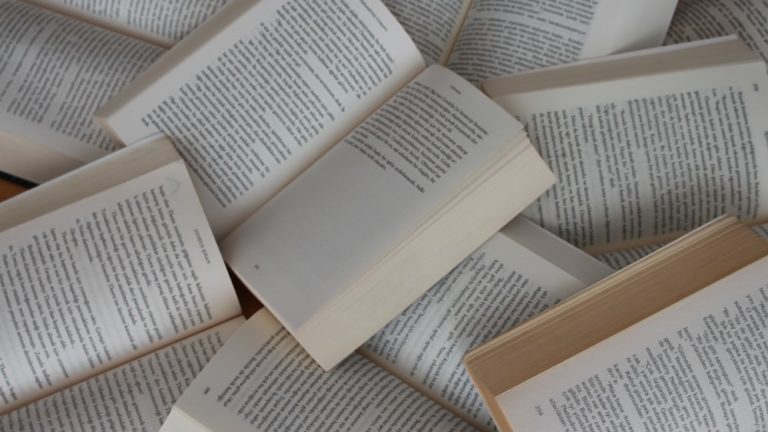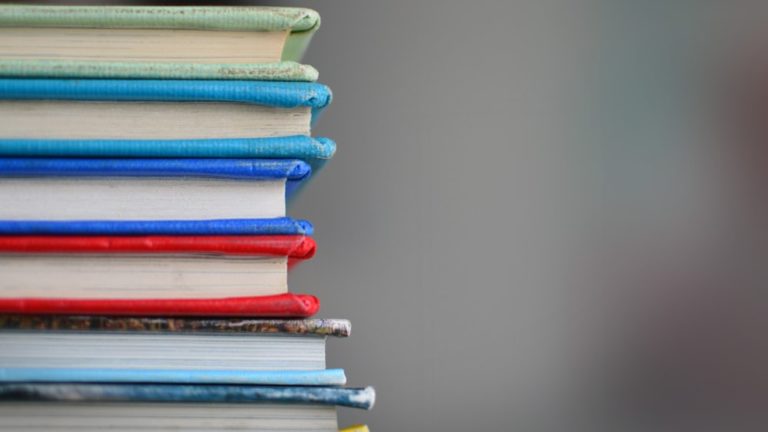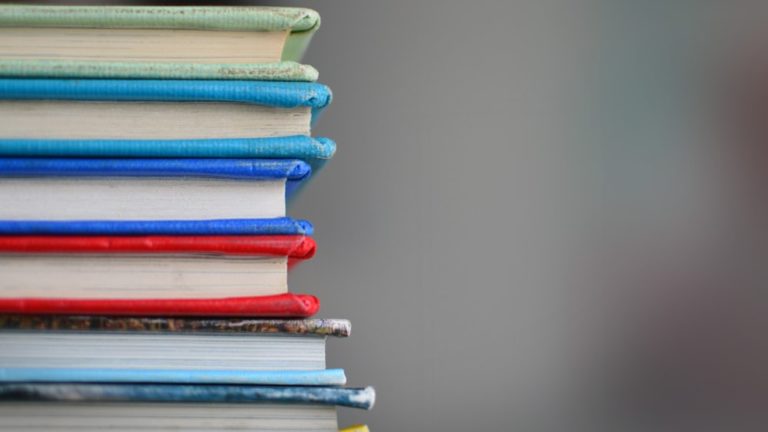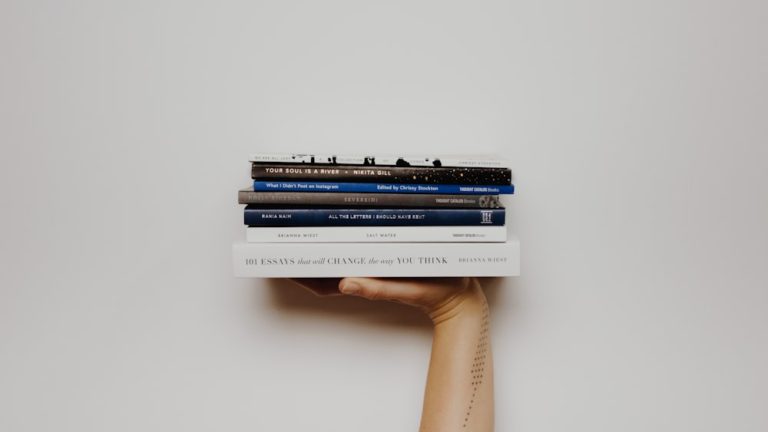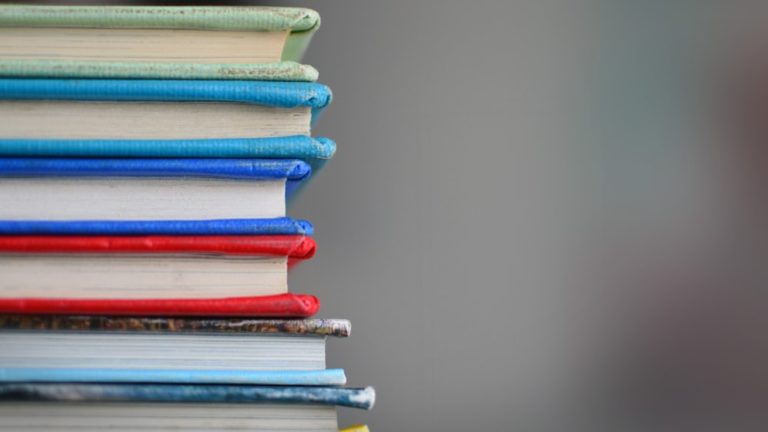15 Essential Best Holocaust Books Of 2024
15 Essential Best Holocaust Books Of 2024
Exploring the depths of human cruelty and resilience, the Holocaust remains one of the darkest chapters in human history. In commemorating those harrowing times, literature has played a pivotal role, offering insights that history books simply cannot. The best Holocaust books not only recount the facts but also delve into the emotional and psychological landscapes of those who lived through the horrors. As a curator of impactful reads, I’ve come across an abundance of narratives that paint this grim picture, each from a unique vantage point.
Key Points:
- Holocaust literature provides deep insights into human resilience, cruelty, and survival.
- Reading Holocaust books fosters empathy, honors memories, and upholds human rights values.
- These narratives enrich our understanding of history by detailing factual events and human experiences.
- Literature on the Holocaust contributes to preventing future atrocities by educating and enlightening readers.
- Recommended books for young readers on the Holocaust include Number the Stars and The Boy in the Striped Pyjamas.
- By engaging with Holocaust literature, we ensure the memory of the past is kept alive for a more compassionate future.
- The 15 essential best Holocaust books offer diverse perspectives that deepen our compassion and enrich our understanding of resilience.
From firsthand accounts of survival and loss to scholarly analyses of the events and their aftermath, these books serve as crucial reminders of the past. They help us to remember, to understand, and most importantly, to ensure that such atrocities never happen again. This carefully curated selection aims to include tales that have touched readers’ hearts across the globe, earned critical acclaim, and sparked important conversations about humanity, morality, and memory.
As we embark on this literary journey together, I invite you to explore these experiences through the eyes of those who bore witness to them. These stories are not easy to read, but they are necessary. They challenge us, they break our hearts, and in some cases, they reveal the indomitable spirit of the human will. It’s my hope that through this exploration, we can find a deeper understanding of the past and the shadows it casts over our present.
The 15 Essential Best Holocaust Books Of 2024
In selecting the 15 essential best Holocaust books for 2024, we dive deep into varied dimensions of this historical atrocity. These books, ranging from personal memoirs to comprehensive historical analyses, offer readers an immersive experience into the lives of those who endured and witnessed the Holocaust. Each title on this list has been chosen for its ability to illuminate different facets of these dark times, providing a layered understanding of both the individual and collective experiences.
1. Night by Elie Wiesel
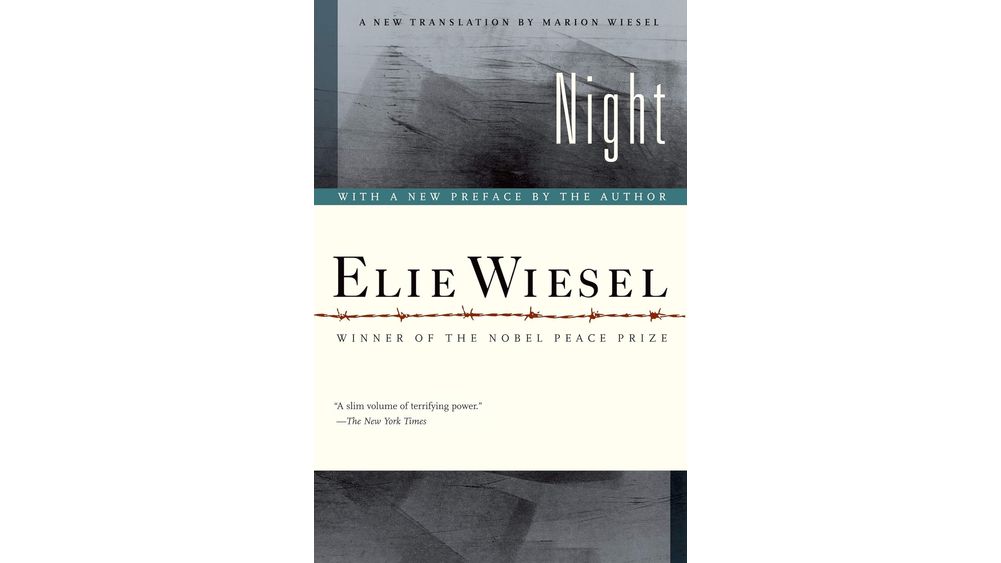
“Night,” a poignant and powerful memoir by Elie Wiesel, stands as a towering beacon in Holocaust literature. Based on Wiesel’s own experiences as a teenage boy surviving the horrors of Auschwitz and Buchenwald, this book offers a stark, gut-wrenching account of the inconceivable atrocities he witnessed and endured. The narrative’s simplicity and directness amplify its emotional impact, pulling readers into a night that no one should ever have to live through but that must be remembered.
Pro:
- Offers a firsthand account of life in Nazi concentration camps, providing a personal perspective that brings history to life.
- Elie Wiesel’s writing style is eloquent yet accessible, making it a powerful read for a wide audience.
- Night encourages important conversations about memory, responsibility, and the importance of bearing witness to atrocities.
Contra:
- The graphic descriptions of violence and suffering may be disturbing to some readers.
- As a personal memoir, it focuses primarily on Wiesel’s experiences, providing a limited view of the Holocaust’s vast scope.
- The intense emotional depth of the book can make it a challenging read for those particularly sensitive to human tragedy.
I recommend this book to you if:
- You’re looking for a deeply personal and impactful account of the Holocaust.
- You value literary quality as much as historical accuracy in a memoir.
- You believe in the importance of remembering history’s darkest chapters to ensure they are not repeated.
2. The Diary of a Young Girl by Anne Frank
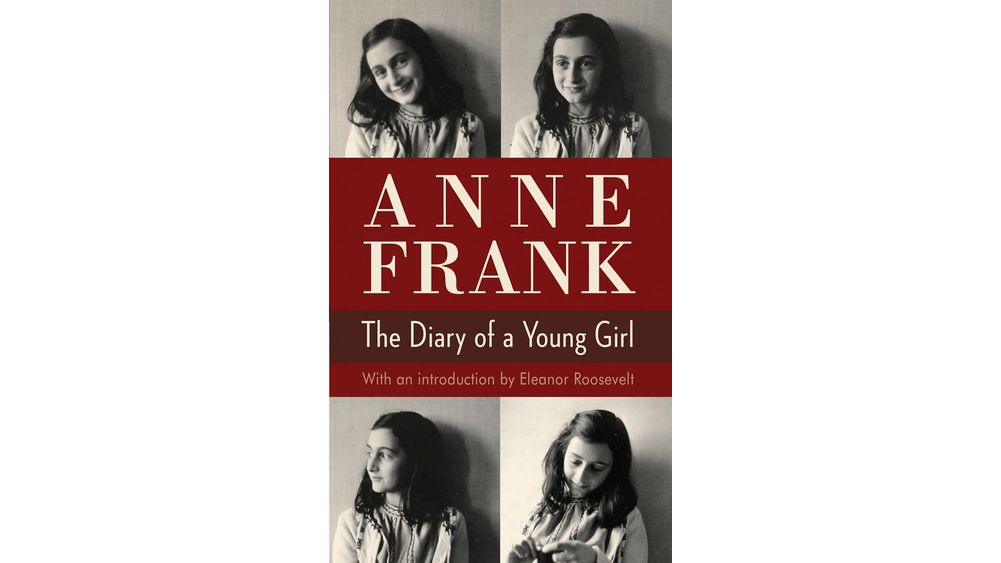
“The Diary of a Young Girl” by Anne Frank is an iconic piece, a window to the soul of a young girl enduring the unendurable with grace, raw honesty, and a flicker of playful youth amidst the darkness of the Holocaust. Anne’s diary, initially intended as a personal journal, emerged as a universal emblem of resilience, offering an intimate portrayal of life in hiding and the spirited adolescence cut tragically short.
This literary treasure, beyond its historical significance, unlocks a vivid sensory experience; readers can almost feel the texture of the diary’s pages and visualize Anne’s handwriting as she confides in her imaginary friend, Kitty. The authentic voice and emotional depth found within the diary’s pages enfold readers, young and adult alike, in a shared journey through Anne’s innermost thoughts, dreams, and fears. The recent unedited edition, with passages restored, presents a more comprehensive glimpse into Anne’s world, underlining the importance of preserving historical truth and the value of empathy and understanding across generations.
Pro:
- Provides valuable historical insights through a personal lens, enhancing understanding of the Holocaust.
- Contains relatable themes of adolescence, fostering a connection with younger readers.
- The unedited edition offers a more complete picture of Anne’s experience and thoughts.
Contra:
- Repetitiveness and mundanity in daily accounts might not appeal to all readers.
- The emotional heaviness of the subject matter can be challenging.
- Historical context required for younger readers may necessitate adult guidance.
I recommend this book to you if:
- You seek a deeper emotional and historical understanding of the Holocaust.
- You appreciate diary-style narratives that offer intimate glimpses into the author’s thoughts and experiences.
- You wish to inspire young readers with tales of bravery, empathy, and resilience.
3. Man’s Search for Meaning by Viktor Frankl
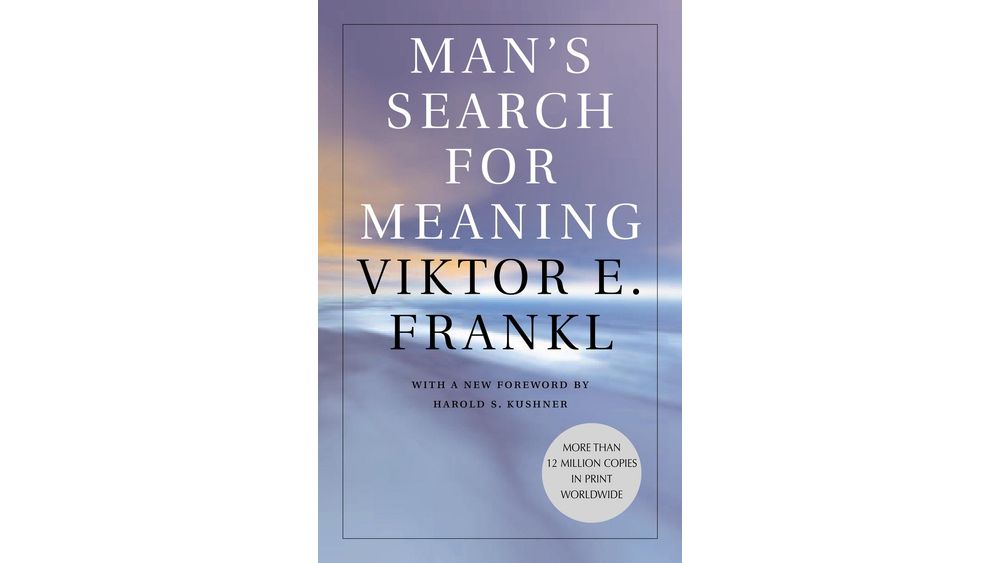
“Man’s Search for Meaning” by Viktor Frankl transcends its bleak Holocaust setting to deliver a tremendously insightful exploration into the human condition and our innate ability to find purpose amidst suffering. Frankl, a survivor and a psychiatrist, introduces logotherapy, his therapeutic method that suggests meaning is the primary motivational force in humans. Readers are not only taken on Frankl’s harrowing journey through Auschwitz but also on a profound intellectual voyage that challenges and offers solace.
The narrative is complemented by a philosophical guide that aids readers in confronting their own existential dilemmas. Frankl’s story is an exemplar of human resilience, showcasing how one can endure extreme hardship and still find reason to hope. The book’s universal themes of seeking meaning and dealing with suffering resonate across cultural and temporal boundaries, making it a timeless gem in Holocaust literature and beyond.
Pro:
- Offers a unique blend of personal Holocaust account and psychological exploration.
- Encourages readers to find personal meaning in their lives, regardless of circumstances.
- Universally applicable themes provide comfort and inspiration to a wide audience.
Contra:
- Psychological discourse may be challenging for readers seeking only historical accounts.
- The philosophical depth might not appeal to those looking for a lighter read.
- Emotional intensity of the Holocaust narrative can be distressing.
I recommend this book to you if:
- You’re intrigued by the intersections of psychology, philosophy, and history.
- You seek inspiration on finding purpose and resilience in adversity.
- You value literary depth and intellectual challenge in your reading material.
5. If This Is a Man by Primo Levi
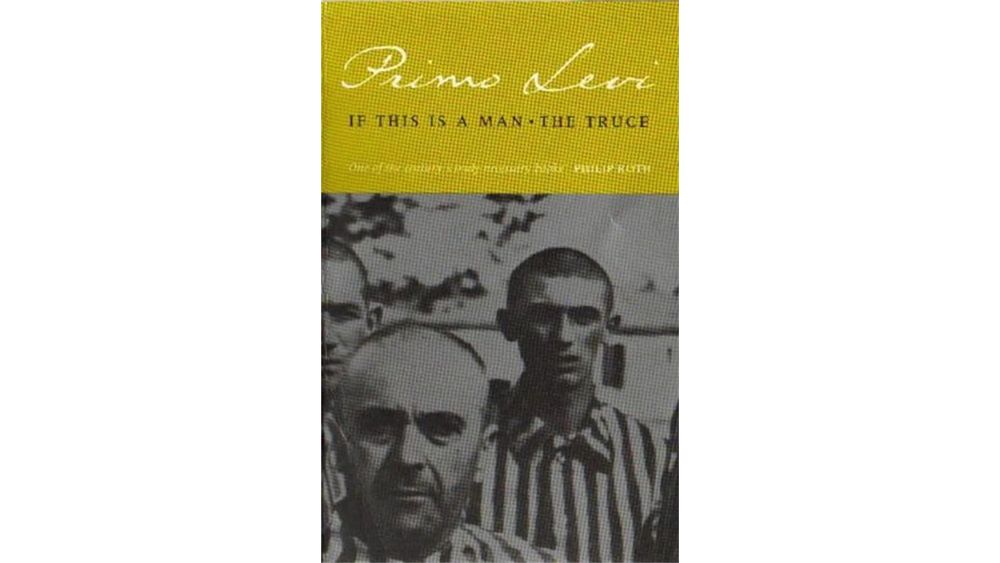
Primo Levi’s “If This Is a Man” stands as a paramount first-person account of the Holocaust. Levi’s articulate restraint and his effort to maintain the perspective of a witness rather than a victim lend a documentary objectivity to his work, making the horrifying experiences he describes even more poignant. The inclusion of both his time at Auschwitz and his journey home in “The Truce” seamlessly connects the dots of his ordeal, providing readers an intimately broad scope of the Holocaust’s aftermath. Levi’s eloquence and his descriptive capabilities in both narrating his story and analyzing complex questions about forgiveness and human evil make this book a crucial read for those looking to understand the depths of human history. [1]
Pro:
- Provides a deeply insightful and meticulously detailed first-person narrative.
- Offers a unique perspective on the Holocaust with an emphasis on the human experience rather than solely historical events.
- The documentary objectivity in writing style makes it a chilling yet essential document of history.
Contra:
- The restrained style and avoidance of vengeance may not satisfy all readers looking for an emotive recounting.
- Levi’s analytical approach to addressing complex questions could be challenging for readers unfamiliar with philosophical contemplations.
- The detailed descriptions of atrocities can be emotionally taxing for sensitive readers.
I recommend this book to you if:
- You value historical accuracy combined with profound personal reflection.
- You seek to understand the complex human emotions and experiences behind historical events.
- You appreciate literature that challenges you to think deeply about morality, survival, and the essence of humanity.
6. Ordinary Men: Reserve Police Battalion 101 and the Final Solution in Poland by Christopher Browning
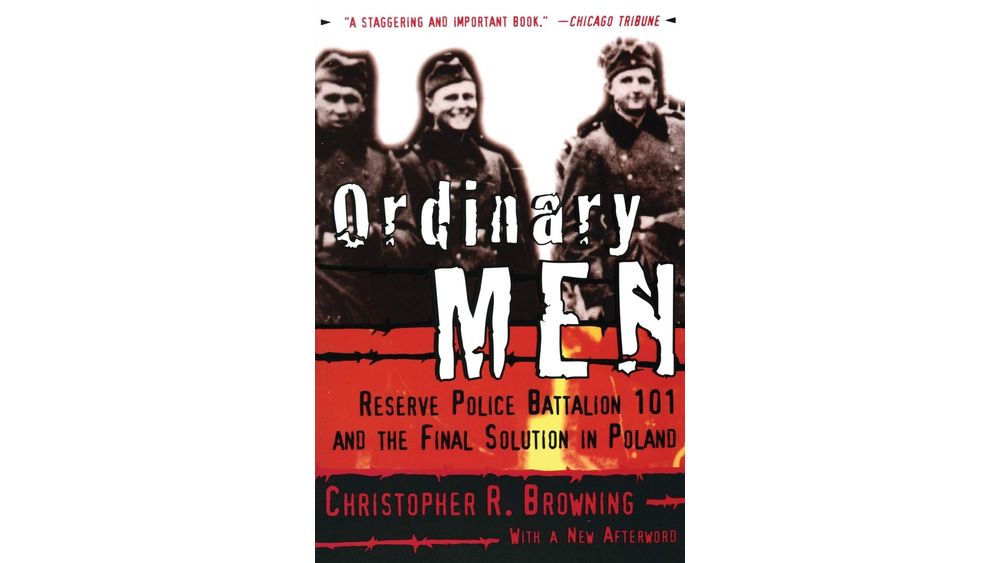
Christopher Browning’s “Ordinary Men” is a well-researched and in-depth account of Reserve Police Battalion 101’s role in the Holocaust. This chilling portrayal underscores the human capacity for brutality within ordinary individuals and poses provocative questions about authority, conformity, and moral responsibility. Browning meticulously details the choices made by individuals in the face of heinous commands, offering an essential study on the psychology of violence and the conditions that can transform average men into perpetrators of genocide. The organizational clarity and thoroughness of Browning’s research make this book an invaluable educational resource.
Pro:
- Provides a granular, comprehensive account of Reserve Police Battalion 101’s role in the Holocaust.
- Encourages readers to reflect on moral choices and the potential for darkness within ordinary individuals.
- Browning’s methodological approach offers a nuanced understanding of the psychology of the perpetrator.
Contra:
- The detailed accounts of violence may be distressing for some readers.
- Browning’s analytical depth might be daunting for readers seeking a general overview rather than an academic study.
- The theoretical exploration of why men participated in mass shootings can be abstract and complex, requiring reader patience and contemplation.
I recommend this book to you if:
- You are intrigued by the psychological dimensions of history and violence.
- You desire a deeper understanding of how ordinary people can commit extraordinary atrocities.
- You value history books that push you to think critically about human nature and societal structures.
7. Auschwitz and After by Charlotte Delbo
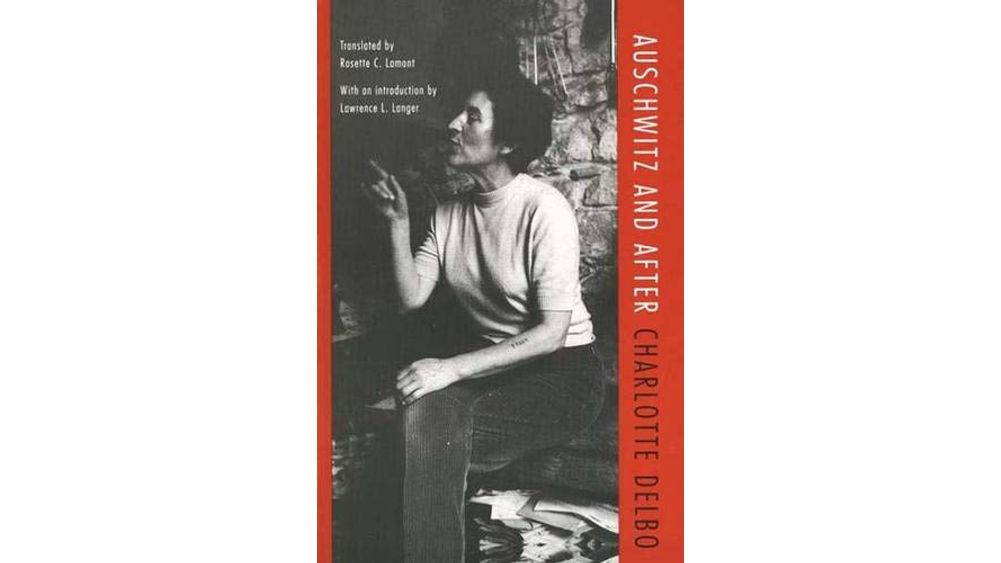
Charlotte Delbo’s “Auschwitz and After” transcends conventional Holocaust narratives through its unique blend of poetry and prose, plunging readers into the haunting realities of concentration camp life and the indelible marks it leaves on those who survive. Delbo’s work is a testament to the enduring trauma of the Holocaust, offering a deeply personal yet universal exploration of human suffering and resilience. Her poetic approach to recounting her experiences makes the terror, and survival, more vivid, conveying emotions and memories that standard narratives could not capture. Through meticulously crafted words, Delbo achieves the near-impossible: making readers feel the unfeelable, understand the incomprehensible, and remember the unforgettable.
Pro:
- Delbo’s poetic narrative style provides a unique and profound insight into Holocaust experiences.
- Offers a raw and intense emotional exploration of survival, memory, and the aftermath of trauma.
- Challenges readers to confront the impact of the Holocaust on a deeply personal level, promoting empathy and understanding.
Contra:
- The poetic format may be less accessible for readers accustomed to traditional historical accounts.
- Its intense emotional depth can be overwhelming, especially for those personally connected to Holocaust experiences.
- The abstractness of poetry may make it challenging for some to grasp the full scope of the historical context and facts.
I recommend this book to you if:
- You are drawn to artistic and innovative approaches to historical narratives.
- You seek a deeply emotional and psychological understanding of the Holocaust’s impact on survivors.
- You appreciate literature that transcends conventional storytelling, offering profound insights into human suffering and resilience.
8. The Happiest Man on Earth by Eddie Jaku
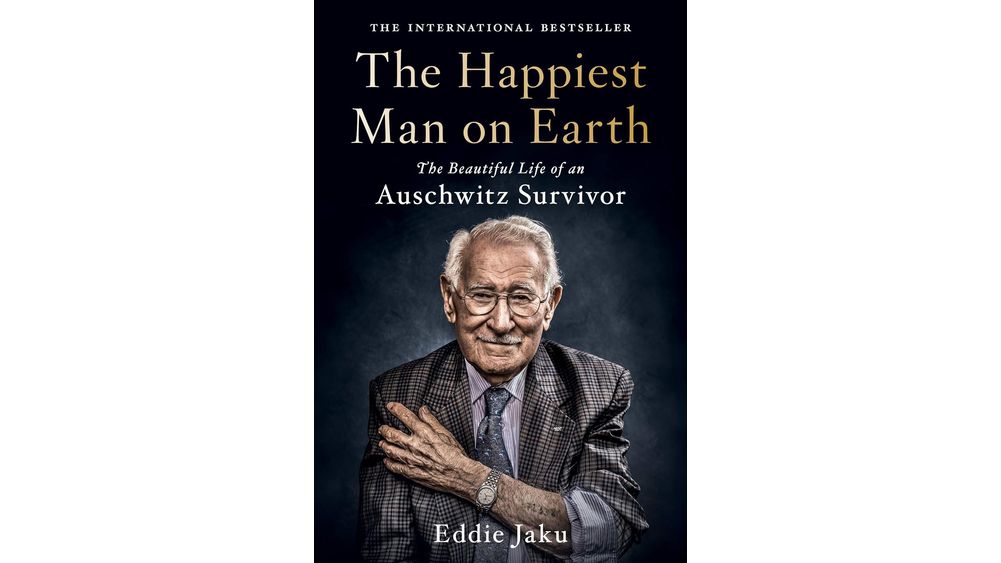
In “The Happiest Man on Earth”, Eddie Jaku offers a profoundly moving firsthand account of his experiences during the Holocaust. Despite the atrocities he faced, Jaku’s narrative is interwoven with moments of compassion, kindness, and an undying positivity that helped him survive. His ability to find joy and gratitude in the face of unimaginable horror provides a powerful message of hope and resilience.
Jaku’s story is not only about survival but also serves as a reminder of the importance of kindness and the strength of the human spirit. His heartfelt appreciation for every act of kindness he encountered along the way is truly touching and serves as a testament to his incredible outlook on life. “The Happiest Man on Earth” is a quick read but leaves a lasting impression, with many readers finding themselves moved to tears by Jaku’s experiences and outlook.
Pro:
- Offers a unique perspective on the Holocaust through the lens of hope and positivity.
- A quick read, making it accessible to a wide audience.
- Provides a powerful reminder of the importance of kindness and human resilience.
Contra:
- Some readers may find it difficult to read due to the emotional weight of the subject matter.
- The book’s focus on positivity might not resonate with everyone, given the horrific context.
- Lacks the in-depth historical context some readers might be seeking about the Holocaust.
I recommend this book to you if:
- You’re looking for a Holocaust account that emphasizes hope and the human capacity for kindness.
- You prefer shorter reads that are both impactful and inspiring.
- You’re interested in personal narratives that showcase the strength of the human spirit.
9. The Tattooist of Auschwitz by Heather Morris
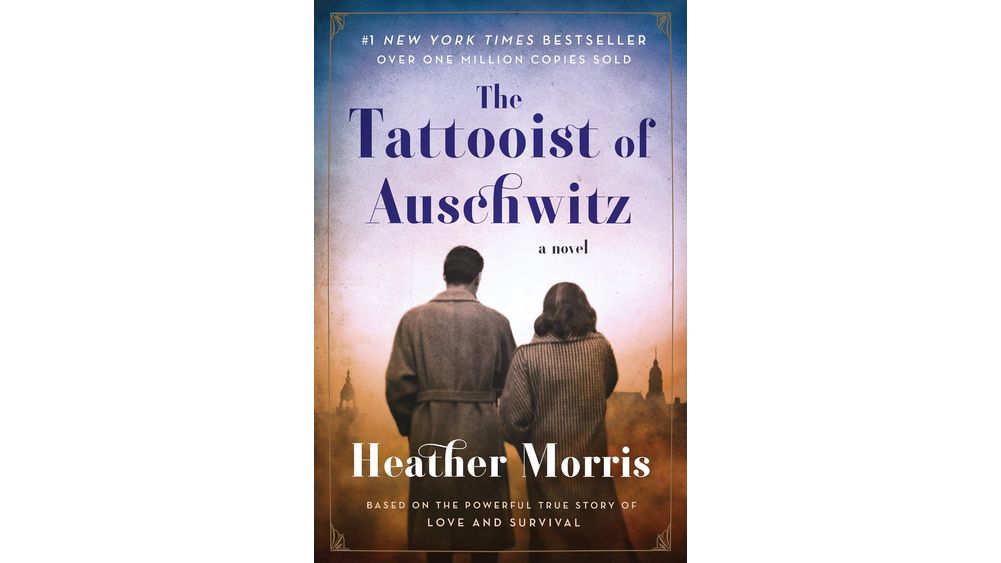
“The Tattooist of Auschwitz” by Heather Morris is a hauntingly beautiful narrative that tells the true story of love and survival against the bleak backdrop of the Auschwitz concentration camp. Through the life of Lale Sokolov, a Slovakian Jew appointed as the camp’s tattooist, Morris explores the enduring power of love and the human spirit in the darkest times. Lale’s love for Gita, a fellow prisoner, becomes a beacon of hope, proving that even in the most horrific conditions, love can flourish and provide a reason to keep fighting for survival.
Morris meticulously chronicles Lale’s journey, from the initial shock and horror of arriving at Auschwitz to his determination to survive and protect Gita at all costs. “The Tattooist of Auschwitz” is not only a testimony to the atrocities of the Holocaust but also a celebration of the resilience and bravery of those who lived through it. This novel reminds us of the capacity for humans to find light in darkness and to make unimaginable sacrifices for love and survival.
Pro:
- A powerful love story that offers a fresh perspective on Holocaust narratives.
- Highlights individual acts of courage and resilience, making it an inspiring read.
- Based on true events, adding authenticity and emotional depth to the story.
Contra:
- Fictionalized elements may not appeal to those seeking strictly historical accounts.
- Some readers may find the story overly romanticized given the setting.
- The focus on a singular narrative might leave readers wanting more context about the broader historical events.
I recommend this book to you if:
- You’re drawn to love stories set against the backdrop of historical events.
- You appreciate narratives that highlight the power of the human spirit.
- You’re interested in Holocaust stories that offer a combination of factual basis with personal insight.
10. This Way for the Gas, Ladies and Gentlemen by Tadeusz Borowski
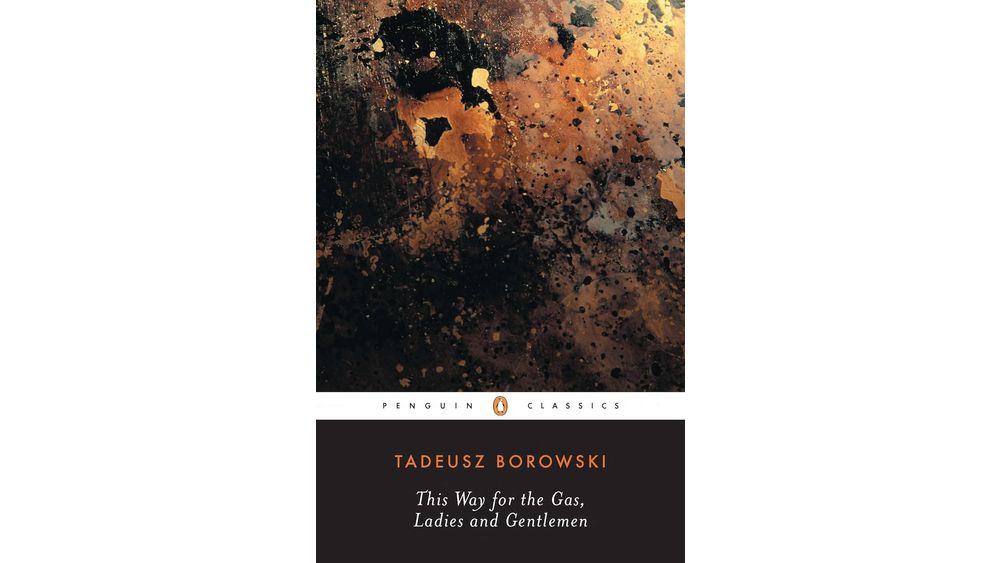
Tadeusz Borowski’s “This Way for the Gas, Ladies and Gentlemen” brings to light the harrowing experiences within the concentration camps through a deeply personal and yet universal lens. Borowski, himself a survivor, writes with a descriptive and matter-of-fact tone, which paradoxically adds emotional depth to the horrors described. His portrayal of daily life in the camps, where the mundane becomes intertwined with the macabre, like retrieving a football amidst a backdrop of mass extermination, is both shocking and compelling.
One cannot help but be moved by the stark realism and the moral quandaries the prisoners faced, as Borowski delves into the survival tactics that often came at the expense of others. His work forces readers to confront uncomfortable truths about the human condition and the thin line between survival and the loss of humanity. It’s a testament to the complexity of human behavior under extreme conditions, providing a gripping read that challenges one’s perspective on morality and survival.
Pro:
- Provides a unique, first-person perspective on the reality of concentration camp life, offering insight into the psychological aspects of survival and adaptation.
- Strikes a remarkable balance between cold, hard facts and the emotionally charged experiences of camp prisoners.
- Engages readers with vivid, sensory details and morally complex situations, highlighting the human cost of the Holocaust.
Contra:
- The matter-of-fact tone might come across as detached or dispassionate to some readers, potentially diminishing the emotional impact.
- Contains graphic descriptions of violence and cruelty, which could be distressing for sensitive readers.
- The focus on survival tactics and moral decisions could overshadow the broader historical context of the Holocaust for some readers.
I recommend this book to you if:
- You’re interested in a deeply personal account of life in a concentration camp
- You appreciate literature that doesn’t shy away from the harsh realities of human behavior under extreme duress
- You’re looking for a thought-provoking read that engages with moral complexities
11. The Choice by Edith Eger
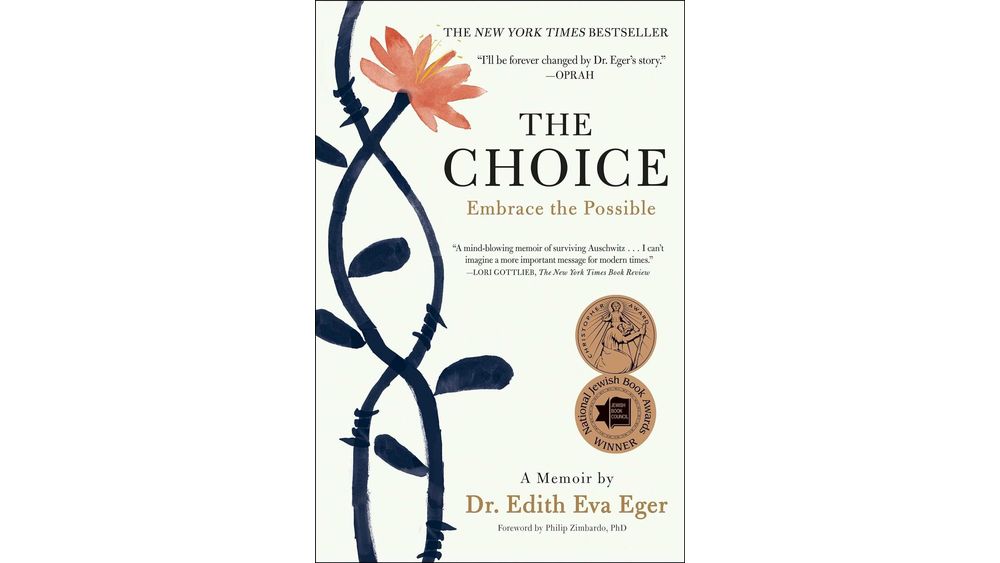
Edith Eger’s “The Choice” is a remarkable story of survival, resilience, and the power of the human spirit to overcome the unimaginable horrors of the Holocaust. Eger, not only a survivor but a beacon of wisdom, shares her journey with a profound sense of humanity and insight, teaching us that freedom is something that cannot be taken away, regardless of the circumstances. Her narrative is not just about the atrocities she faced but about how she transformed her pain into an incredible force for healing herself and others.
Eger’s book is an invitation to reflect on the power of choice, not just in the face of despair, but in everyday life. It resonates with those dealing with their own personal traumas, offering hope and the possibility of redemption through self-discovery. The ways in which her experiences during the Holocaust inform her understanding of human psychology provide a unique perspective on survival, making this book a deeply enriching read.
Pro:
- Offers inspirational and empowering messages about resilience, hope, and the power to choose one’s attitude in any given set of circumstances.
- Well-written and captivating, mixing Eger’s personal Holocaust experience with her professional insights as a psychologist.
- Provides universal lessons applicable to numerous life challenges beyond the context of the Holocaust, making it relevant to a wide audience.
Contra:
- The latter half of the book, focusing on Eger’s autobiographical details, may seem less compelling to readers primarily interested in her World War II experiences.
- Some readers may find the dual narrative of Holocaust memories and therapeutic advice somewhat disjointed.
- Eger’s unwavering optimism and emphasis on personal choice might not resonate with all, particularly those looking for a more traditional historical account of the Holocaust.
I recommend this book to you if:
- You are in search of a powerful, uplifting read that offers practical wisdom drawn from extreme adversity.
- You’re interested in the intersection of personal memoir and psychological insight.
- You value stories of remarkable individuals who turn their darkest experiences into a source of light for others.
12. Bloodlands: Europe Between Hitler and Stalin by Timothy Snyder
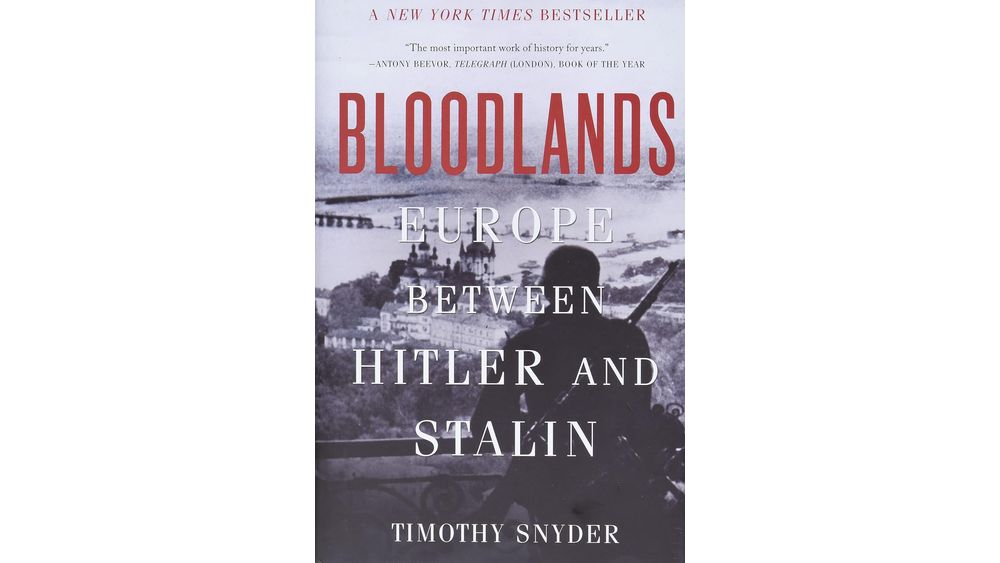
Timothy Snyder’s “Bloodlands: Europe Between Hitler and Stalin” is an ambitious exploration that offers an unflinching and meticulous analysis of the massive human tragedies wrought by these two dictators across Eastern Europe. The book shines a light on the staggering scale of suffering, backed by a vast array of statistical evidence to recount the genocides, including the lesser-known Holodomor in Ukraine. Snyder’s approach, grounding historical narratives in cold, hard numbers, brings a new depth to our understanding of these atrocities while retaining a profound sense of humanity through heart-wrenching personal stories.
Through Snyder’s lens, we are reminded that history is not merely about the victors’ tales but the voices of millions who perished unheard. His comparison of the Holocaust against the backdrop of the Holodomor and other genocides within the Bloodlands offers a compelling argument for viewing these not as isolated incidents but part of a broader historical catastrophe. The inclusion of eyewitness accounts juxtaposed against the brutal statistics makes this work not just a scholarly achievement but a tribute to those who suffered. Snyder delves into the complexities of survival and identity amidst the shifting borders and ideologies, painting a vivid picture of resilience against the darkest of odds.
Pro:
- Uses a comprehensive statistical approach to dissect the genocides, providing a rigorous factual foundation.
- Explores lesser-known atrocities such as the Holodomor, broadening the historical scope beyond the well-documented Holocaust.
- Interweaves heartbreaking personal narratives with statistical analysis, humanizing the horrific numbers.
Contra:
- The sheer weight of statistics and figures may be overwhelming for some readers.
- Snyder’s detailed examination of multiple genocides might dilute the focus for readers seeking a concentrated analysis of a single event.
- Emotionally challenging content, including vivid descriptions of brutality and suffering, can be difficult to digest.
I recommend this book to you if:
- You’re interested in a comprehensive analysis of the Holocaust and Holodomor.
- You appreciate historical works that blend statistical research with personal stories.
- You’re prepared to face the harsh realities of human suffering during one of history’s darkest periods.
13. The Lost: A Search for Six of Six Million by Daniel Mendelsohn
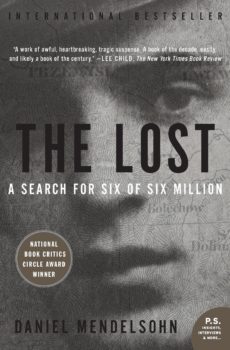
In “The Lost: A Search for Six of Six Million,” Daniel Mendelsohn embarks on a profound and personal journey to uncover the fate of six family members lost in the Holocaust. Mendelsohn’s narrative weaves through time and geography, drawing us into an intimate quest that spans generations. The emotional gravity of the search is matched only by the meticulous historical detective work, revealing a tapestry of heartbreaking tales, acts of courage, and the unfathomable cruelty that characterized the Holocaust. His blending of family memoir with historical investigation challenges the reader to consider the Holocaust in a deeply personal light, transforming statistics back into individual lives.
Mendelsohn’s storytelling is enhanced by the incorporation of family photographs, which serve as poignant reminders of the people behind the numbers, and the delivery of Bronson Pinchot’s narration in the audiobook version is nothing short of masterful. Pinchot brings raw emotion, distinctive voice accents, and a hauntingly powerful performance to the narrative, elevating the listener’s experience to unprecedented levels. Through devastating accounts of last moments and the sheer inhumanity encountered by his forebears, Mendelsohn not only recovers their stories but also confronts us with the sheer magnitude of loss during the Holocaust.
Pro:
- Mendelsohn’s personal connection adds a rich layer of emotional depth and authenticity to the narrative.
- Meticulous research combined with masterful storytelling provides a multifaceted view of the Holocaust.
- The audiobook’s exceptional narration by Bronson Pinchot offers a profound and immersive experience.
Contra:
- The complex narrative structure, shifting between past and present, may be challenging for some readers.
- Emotional intensity of the subject matter, enhanced by personal stories, can be overwhelming.
- Length and detailed descriptions may deter readers looking for a more concise historical account.
I recommend this book to you if:
- You’re drawn to deeply personal narratives intertwined with historical fact.
- You value extraordinary storytelling enhanced by powerful narration.
- You’re prepared to confront the emotional rigors of a journey into one of history’s darkest moments.
14. Underground in Berlin: A Young Woman’s Extraordinary Tale of Survival in the Heart of Nazi Germany by Marie Jalowicz Simon
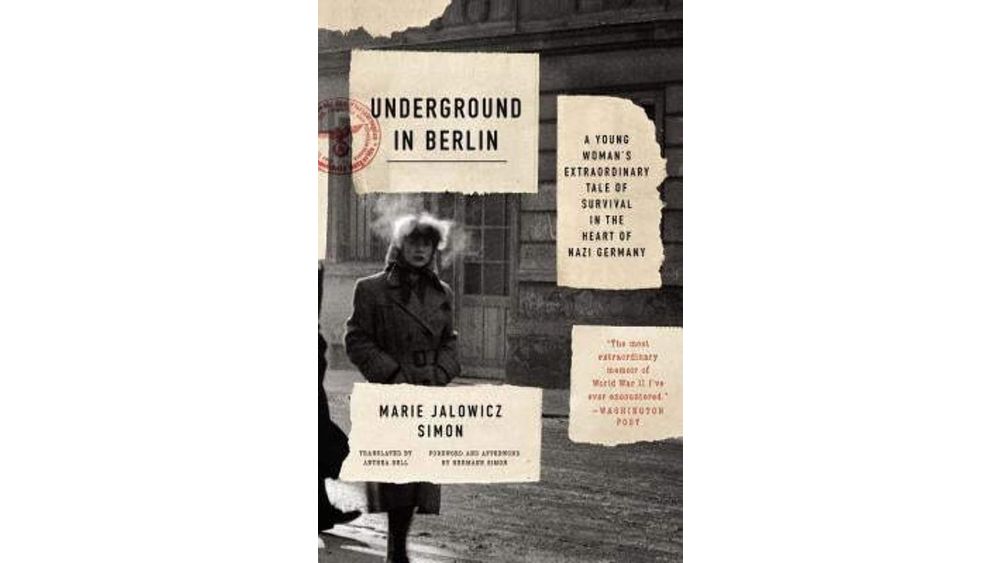
Marie Jalowicz Simon’s memoir, Underground in Berlin, presents an engrossing narrative of a 17-year-old Jewish girl’s survival against all odds in Nazi Germany. Through the intricate weaving of her harrowing experiences, the reader gets an intimate look into the societal dynamics, class divisions, and the drastically altering life before and after the Nazi’s rise to power. Simon’s account is a testament to human resilience, detailing her life from being forced out of school to navigating the dangerous streets of Berlin as a ‘U-Boat’, a term used for Jews in hiding. Her journey of survival, relying on the bravery and kindness of various strangers as well as facing the grim realities of exploitation, provides a deep insight into the complexity of human nature during times of immense peril.
The strength of this narrative lies in Simon’s unflinching honesty and direct tone. She crafts a vivid tableau of the people who played a part in her survival; from those who demanded labor or sexual favors in exchange for shelter, to the ones who showed unfailing kindness yet not without reminding her of their generosity. Simon does not shy away from critiquing both her rescuers and herself, offering a nuanced perspective on the not always noble motivations behind acts of kindness during the Holocaust. Captivatingly, the book transcends Simon’s own story, prompting reflection on broader themes of gratitude, moral ambiguity, and survival.
Pro:
- Offers deep insight into German society’s dynamics during Nazi rule through a personal narrative.
- Highlights the complex nature of human relationships and survival during the Holocaust.
- Encourages reflection on personal resilience and the diverse motivations behind acts of kindness.
Contra:
- The non-linear narrative might be challenging for some readers to follow.
- Some may find the bluntness of Simon’s reflections on her experiences and helpers unsettling.
- The focus on individual survival tactics over broader historic events might not appeal to all readers interested in WWII history.
I recommend this book to you if:
- You appreciate memoirs that offer a personal lens on historical events.
- You’re interested in exploring the complexities of human nature and survival under oppressive regimes.
- You value stories of extraordinary bravery and resilience amidst the darkest of times.
15. Eichmann in Jerusalem: A Report on the Banality of Evil by Hannah Arendt
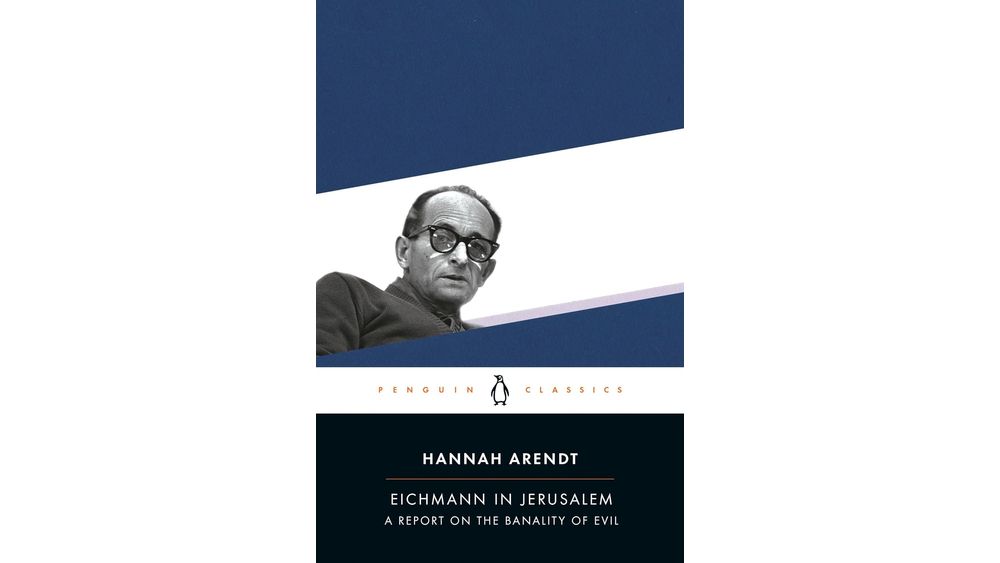
In “Eichmann in Jerusalem: A Report on the Banality of Evil”, Hannah Arendt plunges into the complexities of evil, the Holocaust, and the infamous trial of Adolf Eichmann with a penetrative depth that has sparked debates for decades. Beyond providing a mere account of the trial, Arendt embarks on an exploration of Eichmann’s personality, the psychology behind his actions, and the troubling realization that the perpetrators of heinous crimes can stem from terribly ordinary beginnings. The phrase “banality of evil” encompasses this unsettling truth, challenging readers to ponder the moral and ethical underpinnings of not only the Holocaust but also the nature of evil itself.
Arendt’s book is not only a pivotal historical document but also a philosophical inquiry that delves into the ability of non-violent resistance to counteract totalitarian regimes. Her assertion that Eichmann’s execution was a moral necessity evokes critical thinking about justice, moral responsibility, and the capacity for ordinary individuals to commit unspeakable crimes under certain conditions. The book’s multi-faceted analysis extends to the role of Jewish councils in the Holocaust, inviting controversy and further discussion on the delicate balance between victimhood and complicity.
Pro:
- Provides a thought-provoking analysis of Adolf Eichmann’s trial and the nature of evil.
- Challenges readers to rethink historical narratives and the complexity of human behavior under totalitarian rule.
- Sparks deep philosophical and ethical discussions on justice, responsibility, and the potential for evil in ordinary life.
Contra:
- The complex analyses and philosophical inquiries may be daunting for readers new to Arendt’s work.
- The controversy surrounding Arendt’s views on the Jewish councils and Eichmann may trouble some readers.
- The dense and scholarly nature of the text makes it less accessible to casual readers.
I recommend this book to you if:
- You’re fascinated by philosophical and ethical examinations of historical events.
- You appreciate works that challenge conventional narratives and provoke deep thought.
- You are interested in the psychology of evil and the moral complexities of justice.
FAQs
1. Why is it important to read books about the Holocaust?
It’s important to read books about the Holocaust because they offer insight into one of the darkest periods in human history. By engaging with these narratives, we not only honor the memories of those who suffered but also equip ourselves with knowledge to prevent such atrocities in the future.
Reading Holocaust literature enriches our understanding of human resilience, cruelty, and survival, reminding us of the profound effects of hatred and intolerance. Through these stories, we can foster empathy and commit to upholding the values of human rights and dignity.
2. Can literature help prevent future atrocities?
Literature has the power to enlighten and educate, making it an essential tool in preventing future atrocities. By exposing readers to the harsh realities and emotional depths of the Holocaust, books foster empathy and a deep understanding of the consequences of hatred and intolerance.
In this way, Holocaust literature can indeed contribute to preventing such history from repeating itself, by keeping the memory alive and ensuring that future generations recognize the importance of standing against injustice.
3. How do Holocaust books contribute to our understanding of history?
Holocaust books offer an invaluable perspective on historical events, providing both detailed accounts of the atrocities and intimate insights into the human condition under extreme circumstances.
Through personal narratives and intensive research, these works illuminate the depths of despair and the peaks of human resilience, enriching our understanding of history. They not only chronicle factual events but also teach lessons of empathy, highlighting the importance of remembering the past to ensure a more compassionate future.
4. Are there any recommended books for young readers on this topic?
Yes, there are indeed recommended books for young readers on this topic. Suitable for younger audiences, books like “Number the Stars” by Lois Lowry and “The Boy in the Striped Pyjamas” by John Boyne provide accessible introductions to the complex themes of the Holocaust. These stories, while gentle in their approach, manage to convey the gravity of the era with care and sensitivity, making them appropriate for young readers.
Conclusion
The journey through these 15 essential best Holocaust books affords us a kaleidoscopic view of one of history’s darkest times. Each book opens a door to the past, offering a unique perspective, whether it be a harrowing first-person account or a meticulously researched historical analysis.
The depth and diversity of these works help to ensure that the memory of the Holocaust, and the lessons we must learn from it, are never forgotten. It is through these narratives that we can begin to understand the past, and why it’s crucial to remember it. Including the best Holocaust books in our reading inevitably deepens our compassion and enriches our understanding of the human spirit’s resilience.
Thank you for joining me on this poignant literary journey. It is my hope that these books not only enlighten but also encourage reflections on the importance of empathy and tolerance in our world today. Until next time, keep turning the pages and exploring the stories that shape our history and humanity. Happy reading!
Emma
